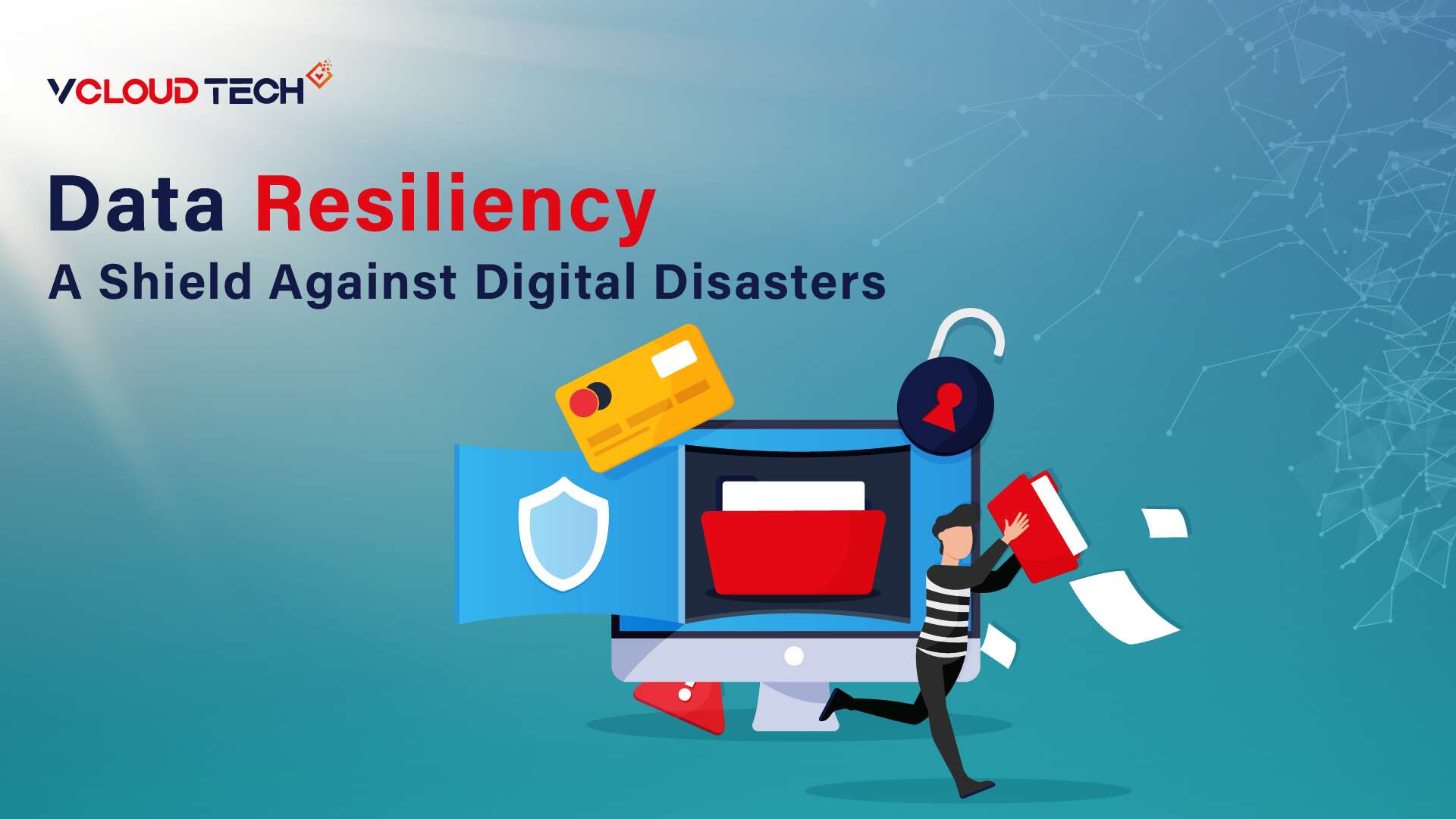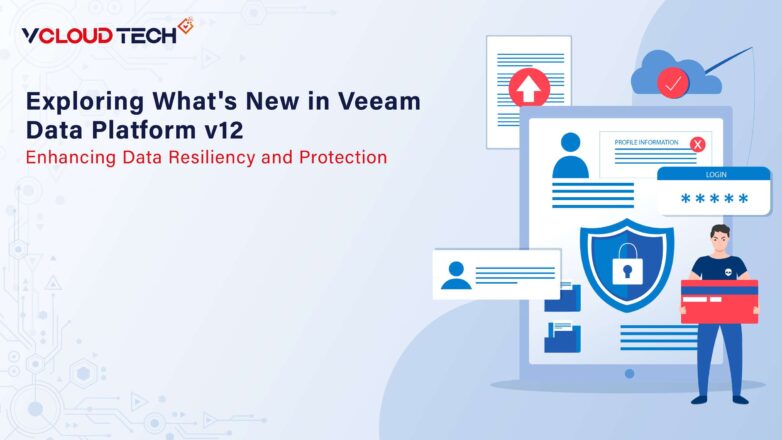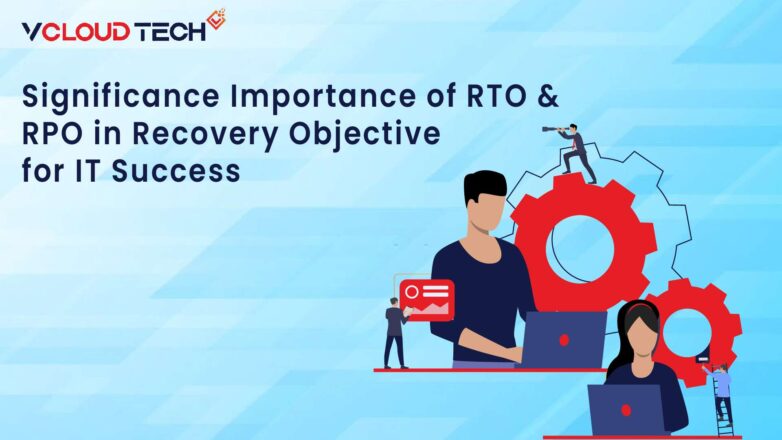In today’s digitally-driven landscape, where businesses rely heavily on data, safeguarding critical information has become paramount. The rise of cyber threats, system failures, and unforeseen disasters underscores the importance of a robust data resiliency strategy. This blog explores the significance of data resiliency, its transformative power in the digital realm, the essential elements in building data resiliency, and its evolving role beyond traditional backup methods.
What is Data Resiliency?
Data resiliency refers to the ability of an organization to protect, recover, and maintain access to its data in the face of various challenges, disruptions, or disasters. This concept is particularly crucial in today’s digital age, where businesses and institutions heavily rely on data for their day-to-day operations. Data Resiliency goes beyond traditional backup practices; it involves a comprehensive strategy to ensure that data remains available, accurate, and secure, even during unexpected incidents.
As technology advances and many tools become available, all the data in these new systems must be backed up and ready for recovery. Product development teams, for instance, are utilizing Kubernetes on AWS to create new apps and update old ones. Some of these, nevertheless, are either totally unprotected or only partially shielded.
Importance of Data Resiliency in a Digital World
The significance of data resiliency cannot be overstated. As organizations increasingly rely on digital data for core operations, decision-making, and customer interactions, safeguarding, recovering, and maintaining this data’s integrity becomes paramount. Here are distinct reasons why data resiliency is of utmost importance in our digitally driven world:
Operational Continuity
Data resiliency ensures that businesses can seamlessly sustain their operations despite unexpected challenges. Whether facing hardware malfunctions, Cyber Threats, or natural disasters, the capacity to retain access to critical data is indispensable for uninterrupted business continuity.
Risk Mitigation
Data resiliency acts as a bulwark in a digital landscape fraught with diverse risks, such as cyberattacks and data breaches. It mitigates these risks by providing mechanisms for effective Data Backup and Recovery, thereby diminishing the impact of potential incidents.
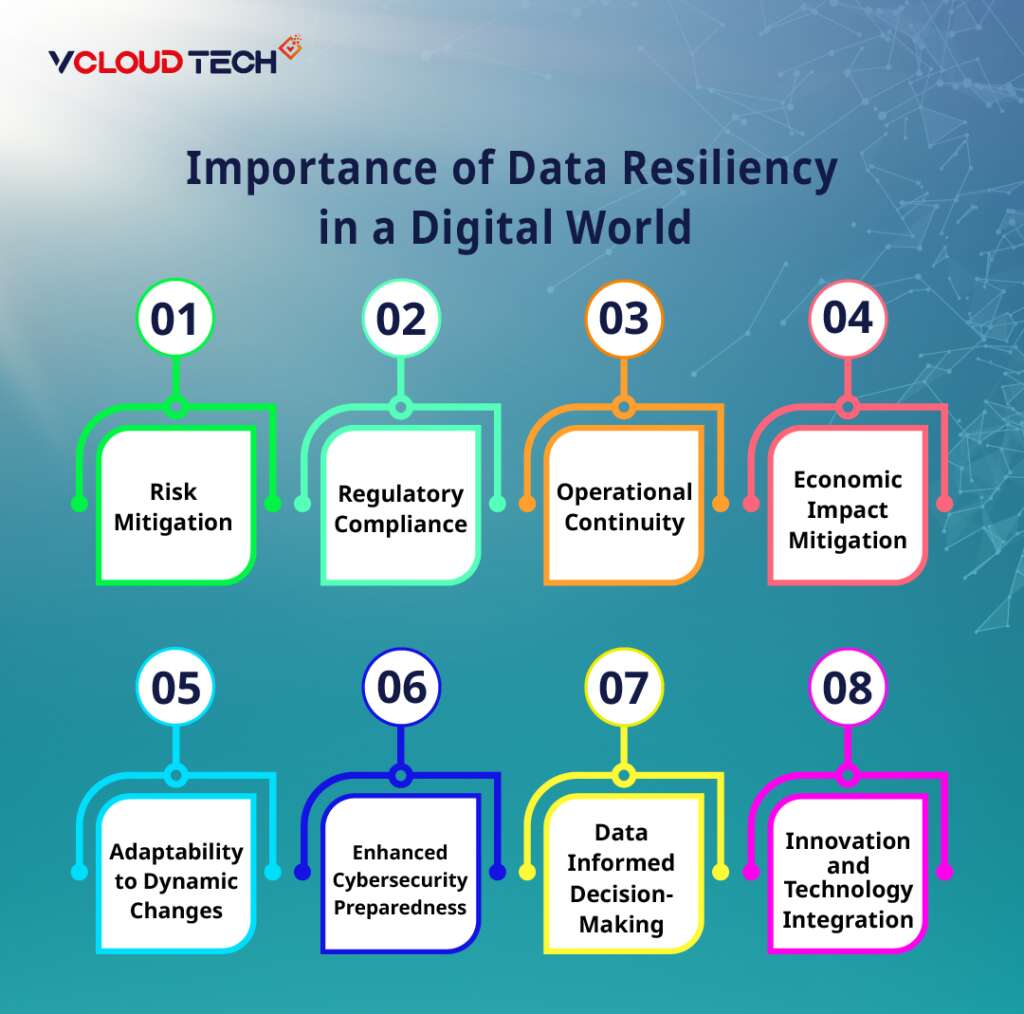
Data-Informed Decision-Making
Organizations heavily rely on data to make informed decisions in the digital realm. Data resiliency guarantees the availability and accuracy of data, enabling businesses to make precise and timely decisions based on dependable information.
Customer Trust and Reputation Management
Trust is a cornerstone in the digital age, and responsible data handling is key. Data resiliency measures underscore an organization’s commitment to safeguarding customer information, fostering trust, and safeguarding the organization’s reputation.
Regulatory Compliance
The digital environment is subject to increasing regulations and compliance standards concerning Data Protection and privacy. Data resiliency ensures organizations meet these regulatory benchmarks by upholding sensitive data’s availability, confidentiality, and integrity.
Innovation and Technology Integration
Organizations adopting Digital Transformation and incorporating new technologies necessitate robust data resiliency. That ensures the integration of new technologies does not compromise the availability or integrity of existing data assets.
Economic Impact Mitigation
Downtime and data loss can have severe economic consequences. Data resiliency mitigates the financial impact of disruptions by reducing downtime, cutting costs associated with recovery efforts, and preventing potential revenue loss.
Adaptability to Dynamic Changes
Rapid changes in technology and business processes mark the digital landscape. Data resiliency empowers organizations to navigate these changes, ensuring data remains accessible and secure during transitions and transformations.
Enhanced Cybersecurity Preparedness
With the increasing sophistication of cyber threats, organizations must be prepared for potential security incidents. Data resiliency and robust cybersecurity measures fortify an organization’s overall Cyber Resilience, enabling it to withstand and recover from cyber-attacks effectively.
Benefits of Data Resiliency
Data resiliency refers to the ability of a system or organization to recover and maintain access to its data in the face of various challenges, such as hardware failures, data corruption, cyber-attacks, or natural disasters. Here are several benefits of implementing data resiliency measures:
Business Continuity:
- Ensures uninterrupted business operations even in the face of disruptions or disasters.
- Minimizes downtime, allowing the organization to continue serving customers and meeting business objectives.
Data Integrity:
- Protects against data corruption, ensuring that information remains accurate and reliable.
- Reduces the risk of errors that can result from corrupted data.
Risk Mitigation:
- Helps mitigate the risks associated with data loss, ensuring that critical information is not permanently compromised.
- Addresses potential threats, such as cyber-attacks, by providing mechanisms for data recovery.
Compliance and Legal Requirements:
- Aids in meeting regulatory compliance and legal requirements by ensuring data availability and integrity.
- Demonstrates a commitment to protecting sensitive information, essential for industries with strict data governance standards.
Cost Savings:
- Reduces the financial impact of data loss by minimizing downtime and the associated costs of recovering or recreating lost data.
- Avoids potential legal and regulatory fines that may result from non-compliance.
Customer Trust and Reputation:
- Enhances customer trust by demonstrating a commitment to safeguarding their data.
- Protects the organization’s reputation by avoiding data-related incidents that could erode customer confidence.
Efficient Disaster Recovery:
- Facilitates quicker and more efficient recovery from disasters or disruptive events.
- Reduces the impact of disasters on an organization’s ability to function and serve its stakeholders.
Operational Efficiency:
- Supports operational efficiency by minimizing disruptions and enabling quick recovery from data-related incidents.
- Allows employees to focus on their tasks rather than dealing with data loss or system downtime.
The Power of Data Resiliency in Today’s Digital Realm
Organizations face a constant barrage of challenges in safeguarding their data. As the volume and complexity of data continue to grow, ensuring its resilience has become paramount. In this context, robust backup and replication solutions are pivotal in fortifying data against unforeseen events. Now sheds light on two industry-leading solutions: Commvault Backup and Veeam Backup and Replication.
Commvault Backup: A Comprehensive Approach:
Commvault Backup is renowned for its holistic and comprehensive approach to data management. Offering a unified platform, Commvault enables organizations to efficiently manage, protect, and recover data across various environments. Its cutting-edge features include automated backups, seamless cloud integration, and intelligent recovery options. With Commvault, businesses can achieve data resilience by minimizing downtime and ensuring data availability even in the most challenging circumstances.
Veeam Backup and Replication: Unleashing Availability:
Veeam Backup and Replication is another industry heavyweight focusing on delivering availability for all data types. Veeam’s innovative approach combines backup, replication, and recovery to provide businesses with a robust and scalable solution. Not only does Veeam safeguard data against loss, but it also enhances business continuity by enabling swift data recovery. Its integration with virtualization technologies and support for multi-cloud environments makes it a versatile choice for organizations seeking data resiliency.
The Essence of Building Data Resiliency
Today data serves as the lifeblood of organizations, hence, building data resiliency is not just a best practice but an imperative for survival and success. Data resilience encapsulates an organization’s ability to safeguard its critical information, ensure its continuous availability, and swiftly recover in the face of adversities. The essence of building data resilience lies in understanding its importance and adopting proactive measures to fortify against potential threats.
The Fundamentals of Data Resiliency:
Regulatory Requirements:
Many industries have stringent data protection regulations. Building data resilience helps organizations comply with these regulations, avoiding legal repercussions and financial penalties.
Data Governance:
Establish robust data governance practices to ensure data is managed ethically, securely, and in compliance with relevant standards.
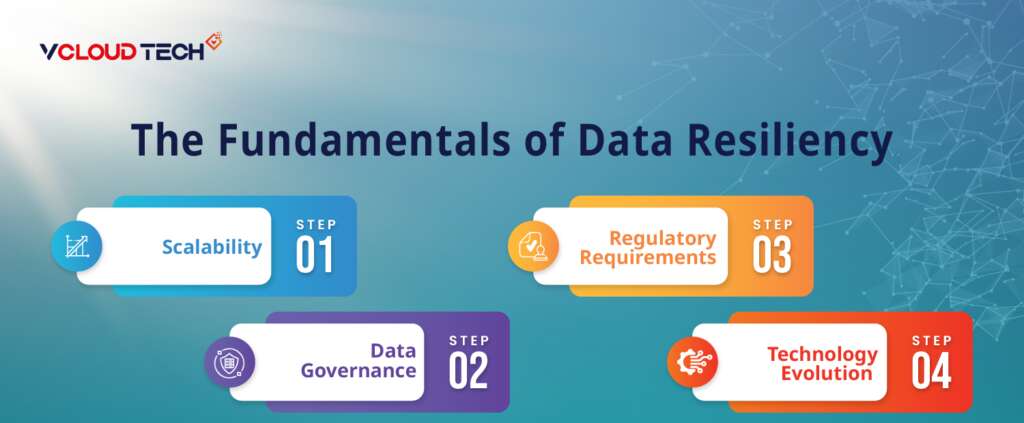
Technology Evolution:
Embrace technological advancements and ensure that data resiliency measures are adaptable to changes in IT infrastructure, such as cloud migration and evolving cybersecurity threats.
Scalability:
Build a data resiliency framework that can scale alongside the growth of data volumes and the organization’s overall digital footprint.
The Role of Data Resiliency for the Future
In today’s digital era’s rapidly evolving landscape, data resiliency transcends traditional backup practices. While backups remain a cornerstone of data protection, the future demands a more comprehensive and proactive approach to ensure critical information’s integrity, availability, and adaptability. This article delves into the evolving role of data resiliency, exploring its significance beyond mere backup strategies and outlining the key principles that will shape its trajectory into the future.
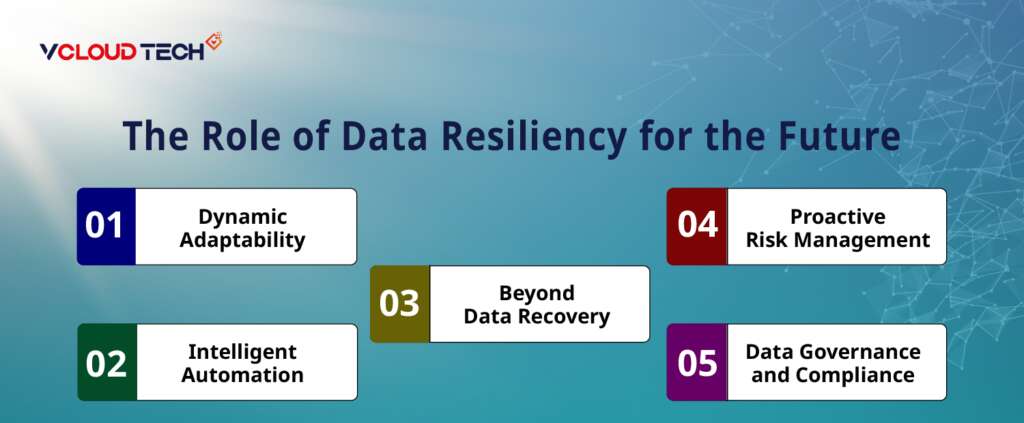
Dynamic Adaptability:
Cloud-Centric Approaches:
With the proliferation of cloud technologies, data resiliency extends to ensuring seamless operations in cloud environments. Organizations are adopting cloud-centric approaches, leveraging the scalability and flexibility of cloud platforms.
Hybrid Environments:
The future of data resiliency lies in accommodating hybrid IT infrastructures, seamlessly integrating on-premises and cloud-based solutions.
Intelligent Automation:
Automated Incident Response:
Beyond routine backups, intelligent automation is pivotal in data resiliency. Mechanical incident response mechanisms can identify, isolate, and mitigate threats in real-time, reducing reliance on manual intervention.
Predictive Analytics:
Utilize predictive analytics to foresee potential issues and proactively implement measures to prevent data loss or downtime.
Beyond Data Recovery:
Data Innovation:
Data resilience is not just about safeguarding existing data; it is about fostering an environment conducive to data-driven innovation. Organizations must leverage their data assets to drive strategic initiatives and stay competitive.
Agility and Innovation:
Cultivate organizational agility, allowing for rapid adaptation to changing circumstances and facilitating innovation in Data Management practices.
Proactive Risk Management:
Anticipating Threats:
Organizations are shifting towards proactive risk management instead of merely reacting to incidents. Data resiliency involves identifying potential threats and vulnerabilities before they impact the organization.
Continuous Monitoring:
Implement real-time monitoring systems to detect anomalies and potential Data Security breaches, allowing for rapid response and mitigation.
Data Governance and Compliance:
Ethical Data Management:
Data resiliency is intrinsically linked to robust data governance practices. Organizations must prioritize ethical data management, ensuring compliance with regulations, and building trust with stakeholders.
Transparency and Accountability:
Establish transparent processes and mechanisms to ensure accountability in data handling, fostering a culture of responsibility across the organization.
Wrapping Up:
The ability of a company to carry on with business activities even in the wake of a disaster, offering their customers continuous and uninterrupted service, is known as data resilience. Because of the rise in cyberattacks and the potential consequences if end users cannot access vital data, it is imperative to have robust data resilience. Various techniques, including data backups, encryption, cloud computing, disaster recovery plans, and training staff members on data resilience can achieve improved data resilience.
Reach out to us and book a Free Consultation with vCloud Tech or chat with one of our representatives. Connect with us on Twitter, Facebook, Instagram, and LinkedIn for more information.



